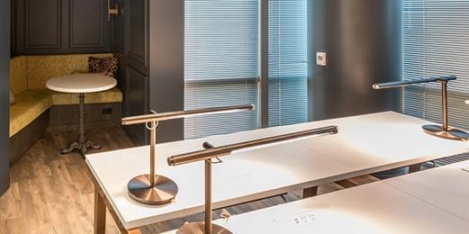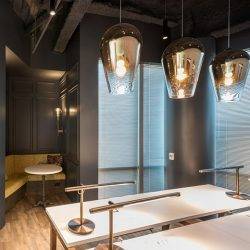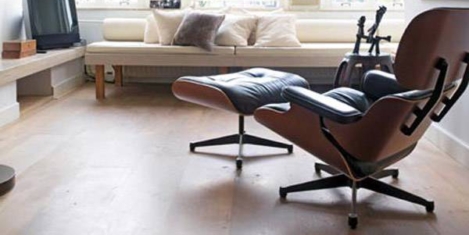To provide the best experiences, we use technologies like cookies to store and/or access device information. Consenting to these technologies will allow us to process data such as browsing behaviour or unique IDs on this site. Not consenting or withdrawing consent, may adversely affect certain features and functions.
The technical storage or access is strictly necessary for the legitimate purpose of enabling the use of a specific service explicitly requested by the subscriber or user, or for the sole purpose of carrying out the transmission of a communication over an electronic communications network.
The technical storage or access is necessary for the legitimate purpose of storing preferences that are not requested by the subscriber or user.
The technical storage or access that is used exclusively for statistical purposes.
The technical storage or access that is used exclusively for anonymous statistical purposes. Without a subpoena, voluntary compliance on the part of your Internet Service Provider, or additional records from a third party, information stored or retrieved for this purpose alone cannot usually be used to identify you.
The technical storage or access is required to create user profiles to send advertising, or to track the user on a website or across several websites for similar marketing purposes.
 As successive BCO Specification Guides and the research of organisations like CoreNet Global have proved, the spatial dynamics of offices have changed dramatically in recent years. Put simply, the modern office serves significantly more people per square foot than ever before. Originally this tightening was largely down to the growing ubiquity of flat screen and the mobile devices, but more recently the major driver of change appears to be the gradual disappearance of personal workstations in favour of more shared space.
As successive BCO Specification Guides and the research of organisations like CoreNet Global have proved, the spatial dynamics of offices have changed dramatically in recent years. Put simply, the modern office serves significantly more people per square foot than ever before. Originally this tightening was largely down to the growing ubiquity of flat screen and the mobile devices, but more recently the major driver of change appears to be the gradual disappearance of personal workstations in favour of more shared space.






 The quality of the coffee is the most important feature for office occupants, with two thirds of workers saying a decent flat white or cappuccino is an essential for a productive and engaged workforce. Research by coworking developer Areaworks also found that being closer to the outdoors, and the ability to work from a balcony or roof terrace was an important factor for 64 percent. Hanging chairs, bean bags and flexible spaces are a must for most, as half of office workers want to ditch fixed desks in favour of casual seating and hot desking, making it a top five most favoured feature. the office gimmicks failed to feature on most people’s workplace bucket list. The installation of office gimmicks such as fireman’s poles and ball pits all failed to feature on most people’s workplace list, but slides did make the list, while the majority (66 percent) included a fridge complete with beer and prosecco among their choice items.
The quality of the coffee is the most important feature for office occupants, with two thirds of workers saying a decent flat white or cappuccino is an essential for a productive and engaged workforce. Research by coworking developer Areaworks also found that being closer to the outdoors, and the ability to work from a balcony or roof terrace was an important factor for 64 percent. Hanging chairs, bean bags and flexible spaces are a must for most, as half of office workers want to ditch fixed desks in favour of casual seating and hot desking, making it a top five most favoured feature. the office gimmicks failed to feature on most people’s workplace bucket list. The installation of office gimmicks such as fireman’s poles and ball pits all failed to feature on most people’s workplace list, but slides did make the list, while the majority (66 percent) included a fridge complete with beer and prosecco among their choice items.












 Employers need to recognise the workplace as integral to delivering a business’ commercial strategy, and treat employees as ‘workplace consumers’ – creating ‘frictionless’ experiences and environments that help them perform to their best ability. This is according to a report: ‘Optimising performance: defining, designing, maintaining and evolving workplace experiences’ from Interserve, undertaken in partnership with Advanced Workplace Associates (AWA). The two-year study into the science behind effective working environments argues there is a need to radically re-envisage workplaces to optimise team productivity and maximise the value of physical working environments. It sets out a series of critical steps for knowledge-based businesses to revolutionise the workplace – and thereby aid employee performance. The report argues that traditional silos, from IT and HR to facilities, need to be broken down to integrate the management of the workplace as part of a ‘one-team’ approach; doing so will ensure companies can deliver a streamlined workplace experience which supports employee productivity.
Employers need to recognise the workplace as integral to delivering a business’ commercial strategy, and treat employees as ‘workplace consumers’ – creating ‘frictionless’ experiences and environments that help them perform to their best ability. This is according to a report: ‘Optimising performance: defining, designing, maintaining and evolving workplace experiences’ from Interserve, undertaken in partnership with Advanced Workplace Associates (AWA). The two-year study into the science behind effective working environments argues there is a need to radically re-envisage workplaces to optimise team productivity and maximise the value of physical working environments. It sets out a series of critical steps for knowledge-based businesses to revolutionise the workplace – and thereby aid employee performance. The report argues that traditional silos, from IT and HR to facilities, need to be broken down to integrate the management of the workplace as part of a ‘one-team’ approach; doing so will ensure companies can deliver a streamlined workplace experience which supports employee productivity.












September 6, 2018
Creating a productive workplace for people is all about context
by Mark Eltringham • Comment, Facilities management, Workplace, Workplace design
(more…)